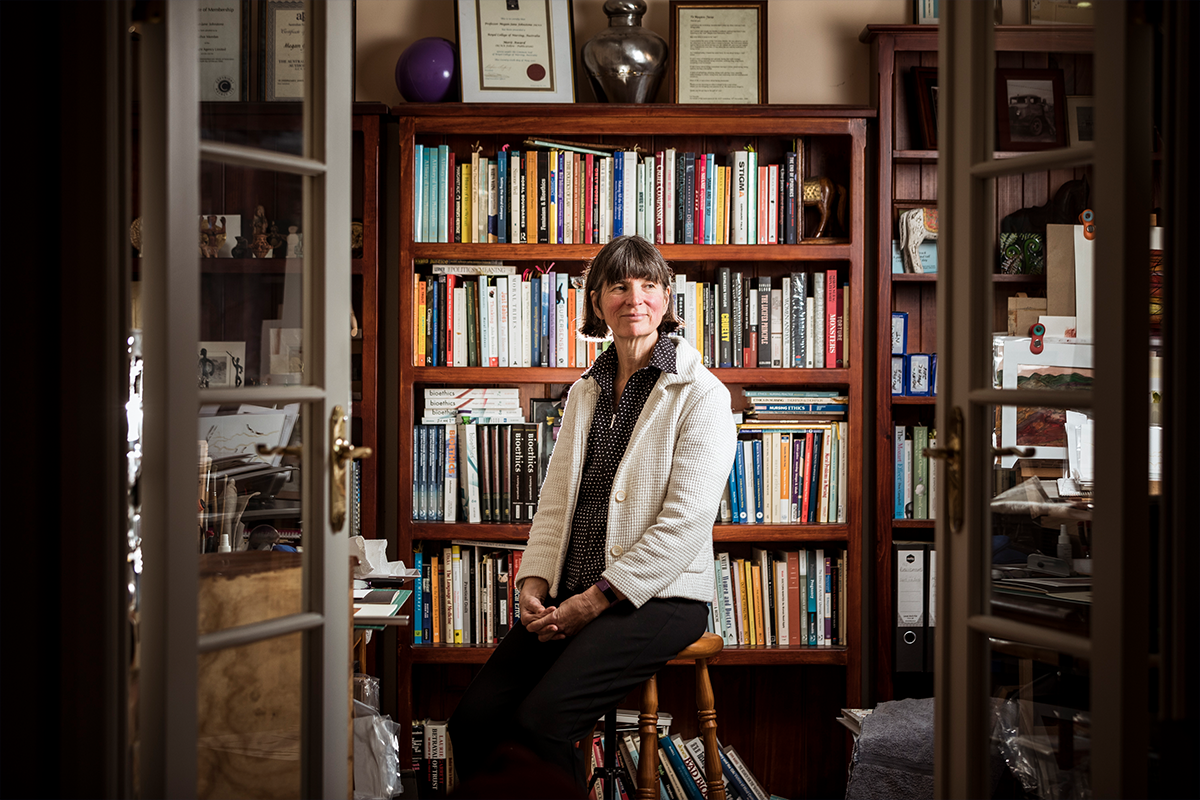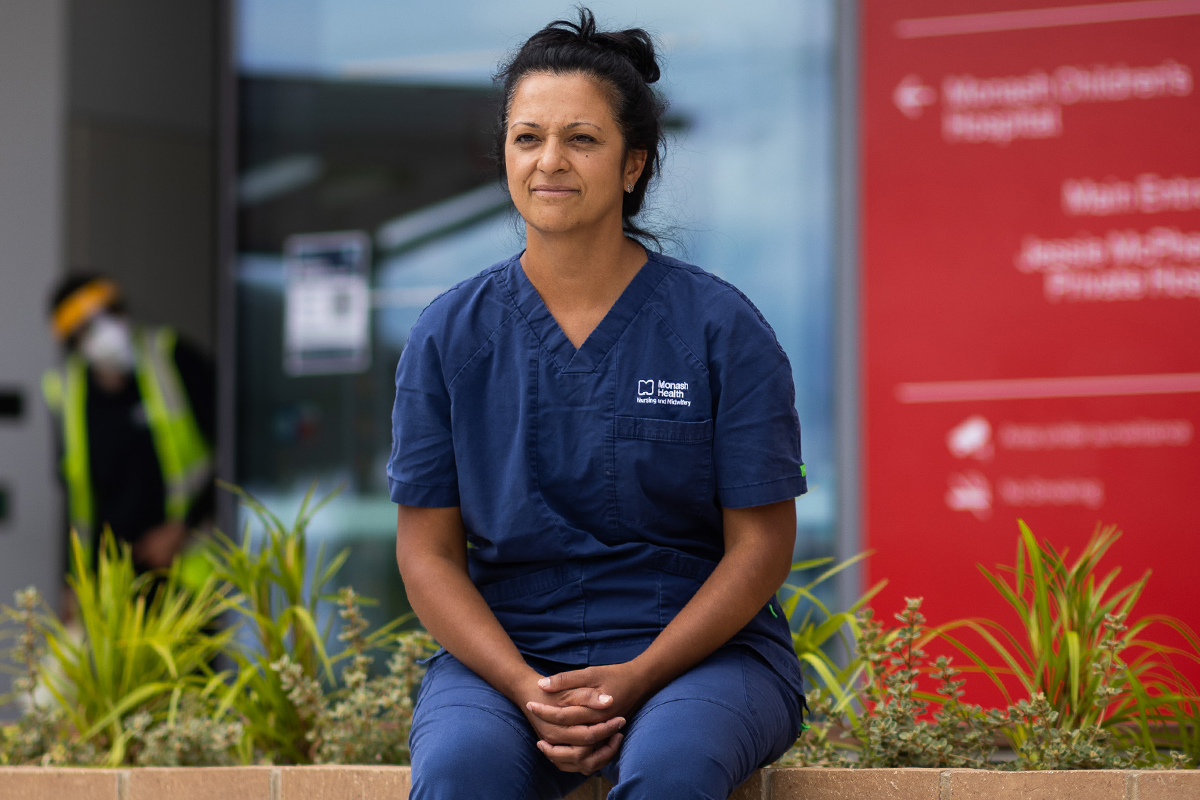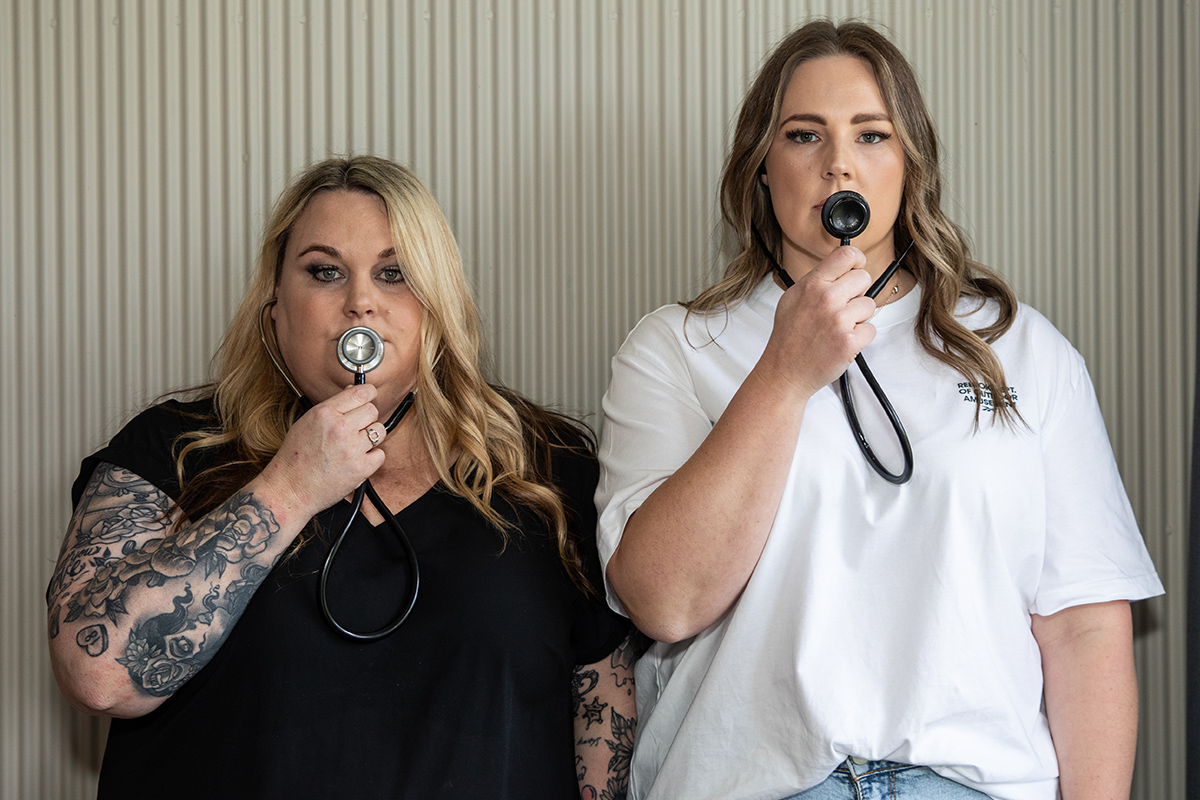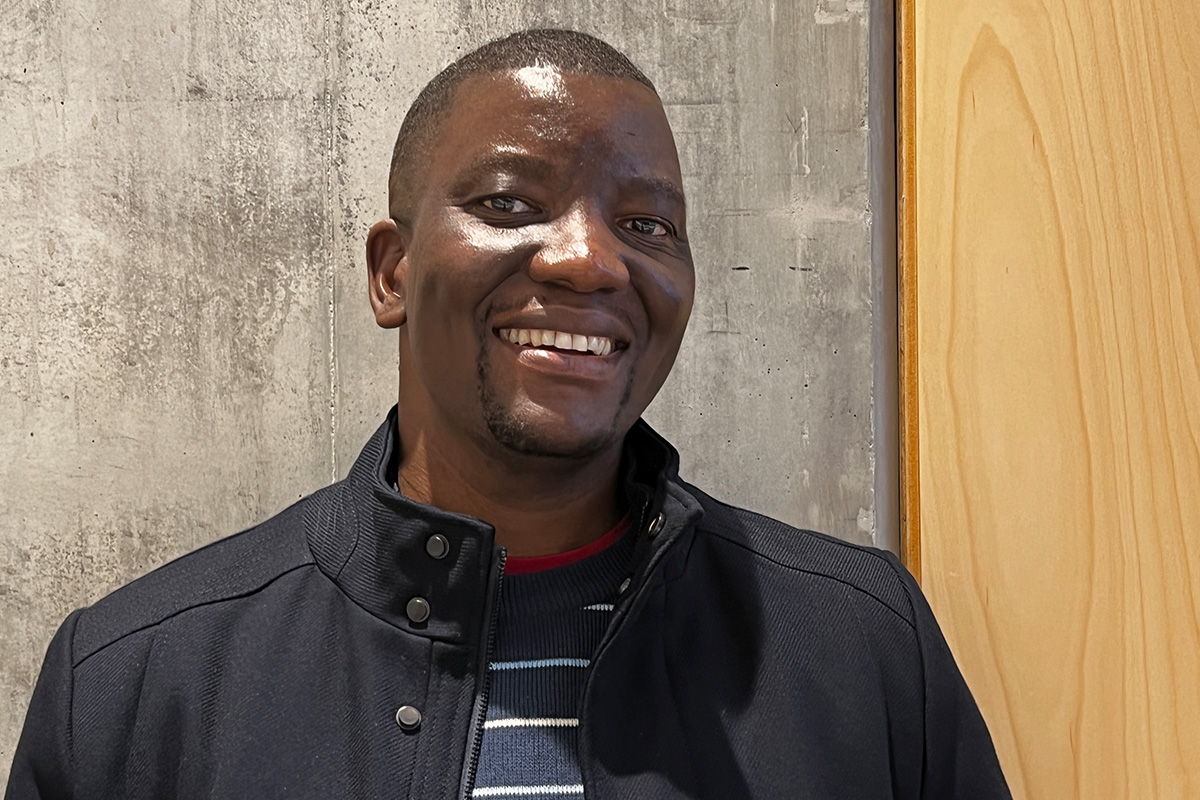
Megan-Jane Johnstone. Photograph by Chris Hopkins
The prodigious and powerful work of Australia’s leading nursing ethics academic Megan-Jane Johnstone has been recognised in this year’s Queen’s Birthday honours list with the retired professor being appointed an Officer in the Order of Australia (AO).
For almost her entire career, Dr Johnstone has focused on the many varied and complex ethical issues nurses encounter in their working lives. She listens to nurses. She asks them what is troubling them in their workplaces. She hears their concerns, and she examines new ways of approaching what some people might consider intractable issues.
That work has led to a formidable catalogue of published books, articles, commentaries and more, all of which examine the moral decisions nurses must make in clinical practice. Indeed, her landmark book Bioethics: A Nursing Perspective (published by Elsevier) has just gone into its seventh revised edition – taking it to a remarkable 30 consecutive years in print.
‘Over the years the same ethical issues have kept coming up again and again,’ Dr Johnstone says. ‘Issues around patients’ rights, patients’ consent, privacy and confidentiality, end-of-life issues, to name some. They have, however, become more complex’.
As a young training nurse in New Zealand, Dr Johnstone had an experience that shocked her deeply and which later informed her career path.
In a highly progressive hospital filled with what she says were amazing educators and role model nurses, one senior midwife stood out for the wrong reasons. The midwife, who did not like obese people, told a young, pregnant and obese patient, ‘I hope you don’t have to have a caesarian because all you will find is big blobs of yellow fat’.
Dr Johnstone was so outraged that she reported the midwife’s conduct to her supervisor. Instead of being dismissed from the hospital, as she expected, she was praised and action was taken to change behaviour.
It is important to remember that this occurred in the 1970s, when hospital managers were not as receptive to complaints as they might be now. The experience strongly influenced her decision to study moral philosophy and ethics.
‘Once I had discovered ethics in a Philosophy 101 lecture, I knew right then what I needed to do,’ she says. ‘I had a very clear vision and I even formulated a 10-year plan.’
Her goals were, firstly, to become credentialled in ethics so that she could help build a solid foundation in the discipline of moral philosophy; secondly, to make more visible the ethical issues in hospitals for workers inside, and the public outside, the health care system; and, thirdly, to give nurses a framework – ‘a language, something to hang their hat on’ – in terms of truly upholding the moral ideals of the profession.
During her academic career she has served as professor of nursing at RMIT University (1998-2008) and Deakin University (2008-2017). She is now retired.
Dr Johnstone says she is truly humbled by what she says is the ‘tremendous honour’ of being appointed an Officer of the Order of Australia.
‘I am receiving it, though, on behalf of all nurses who have sought to uphold the highest standards of the profession,’ she says. ‘There are so many nurses who are unsung heroes, who work with the homeless, refugees, who work in the prison systems, and think also of our remote-area nurses.’
‘Then I think of all those nurses who go to Africa and work with Ebola victims, who do these extraordinary things and who are working to the highest moral standards that we can possibly imagine. It just makes it all so humbling for me.’
‘I want to say, though, that this award gives recognition, I hope, to this field that I have given my whole working life to.’
‘And I am such a proud member of the ANMF. It has really championed nursing and education, so that it is much more than the traditional notion of a ‘union’.
‘They have picked up so many of the relevant issues in the ANMF journal, and their conferences have just been brilliant – in many ways, the conferences were a live source of information for my writing.’
‘To all the nurses, we owe a great deal of gratitude – for the professionalism they provide, their leadership and more.’




